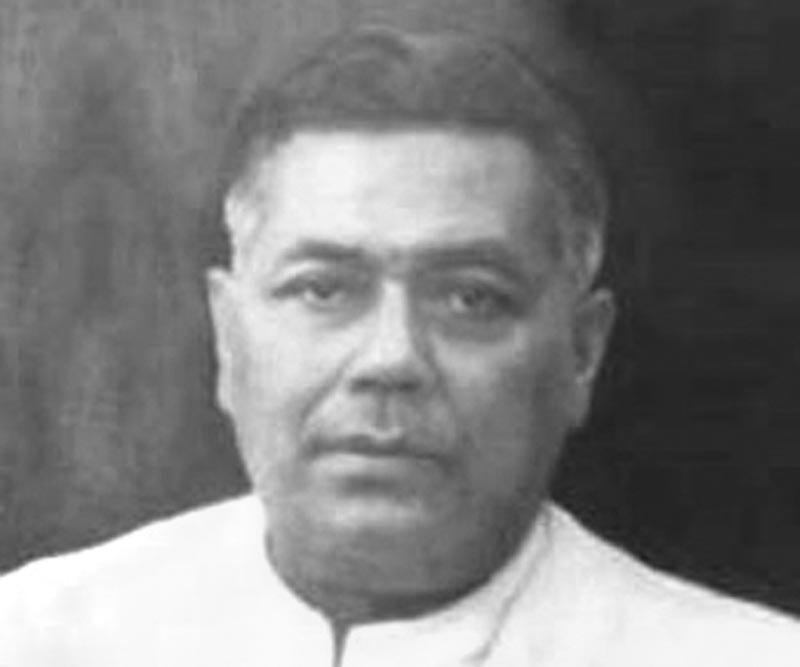
Gopinath Bordoloi was the first Chief Minister of the Indian state of Assam, and also a leading Indian independence activist. He was a follower of the Gandhian principle of non-violence as a political tool. Due to his unselfish dedication towards Assam and its people, the then Governor of Assam Jayram Das Doulatram conferred him with the title “Lokapriya” (loved by all).
Gopinath Bordoloi was born on 6 June 1890 at Raha. His father was Buddheswar Bordoloi and mother Praneswari Bordoloi. He lost his mother when he was only 12 years old. He got admitted in Cotton College after passing matriculation in 1907. He passed I.A. in 1st Div. in 1909 and took admission in the renowned Scottish Church College, Calcutta and graduated in 1911. He took up the temporary job as Headmaster of Sonaram High School. During that period, he sat and passed in the Law examination and started practising in 1917 in Guwahati.
Assam Association was the only political organisation of Assam in that period. Assam Congress was formed in 1922 as a branch of the Indian National Congress. Gopinath Bordoloi’s political life started when he joined the Indian National Congress as a volunteer in that year. He actively participated in the fight for independence. He was arrested in 1922 due to active participation in the Non-Co-operation movement and was put in jail for 1 year.
British Government formed a Cabinet Commission in 1946 to discuss the demands for Indian Independence. The members held meetings with Congress and Muslim League in Shimla and Delhi. Their plan included grouping of states into 3 categories for selecting the candidates to form the constitutional body with Assam and Bengal in third group. Gopinath Bordoloi sensed the ominous sign for Assam in the plan as the inclusion would mean the local representative would become minority in comparison to Bengal. That would be devastating for the rights of the people of Assam.
Gopinath Bordoloi was also a gifted writer. He wrote several books like Annasaktiyog, Shree Ramachandra, Hajrat Mohammad, and Budhhadeb while in jail. For all his life he was a stern believer in Gandhian principles. He led a simple life in spite of being a Chief Minister. He died on 5 August 1950.
He was awarded the Bharat Ratna posthumously in 1999.
Vocabulary
Formed—formulated
Wrote—penned down

